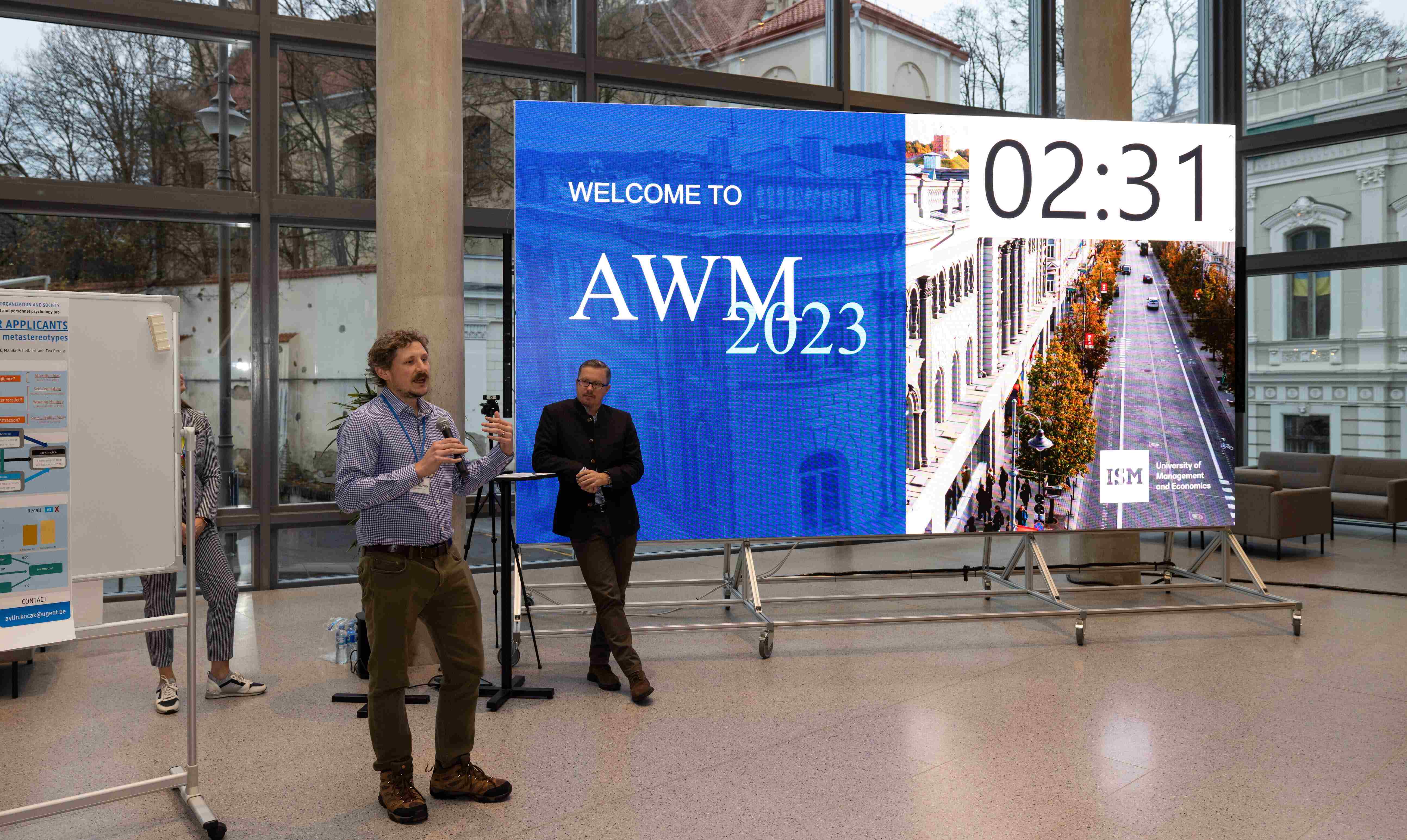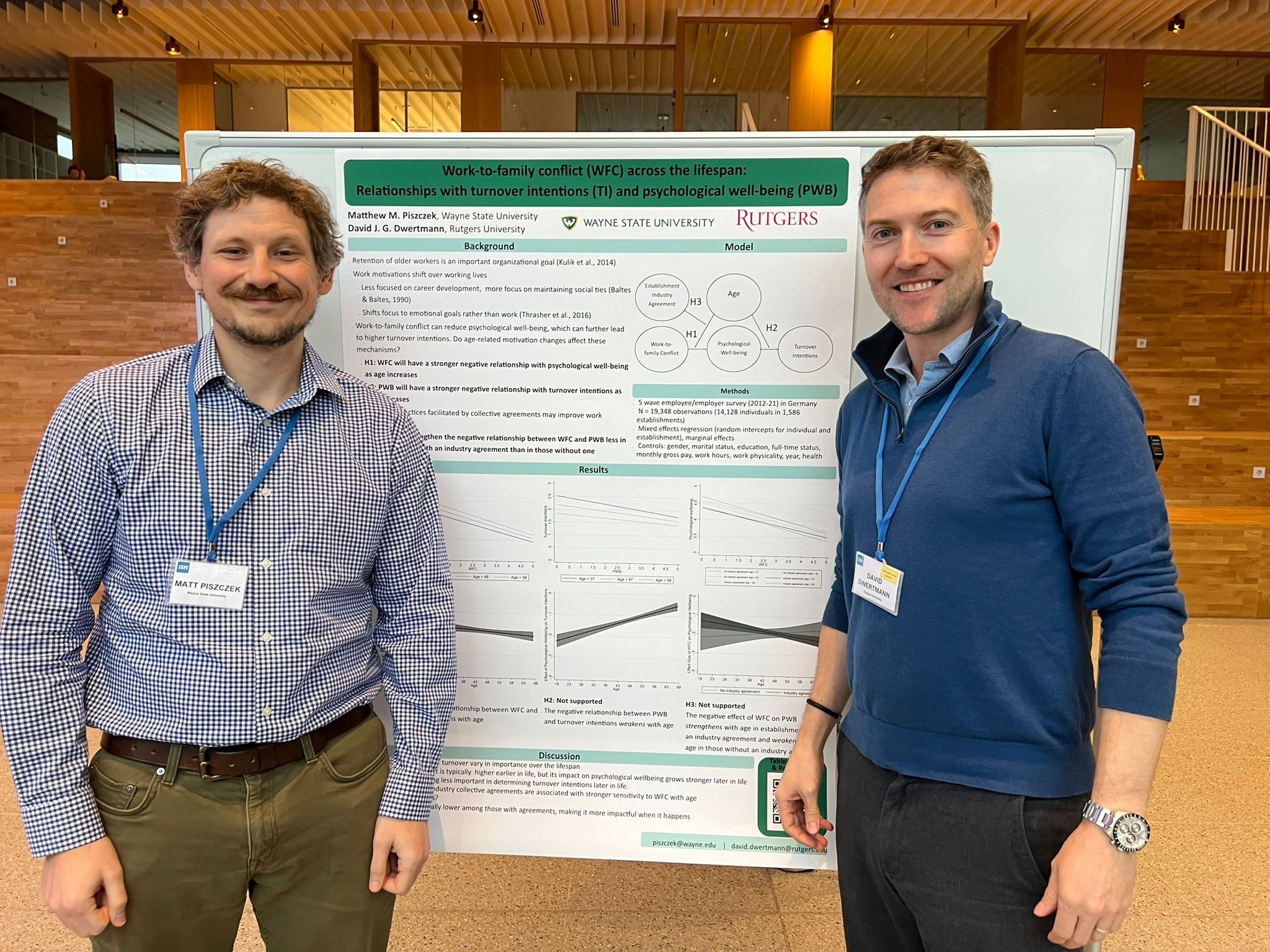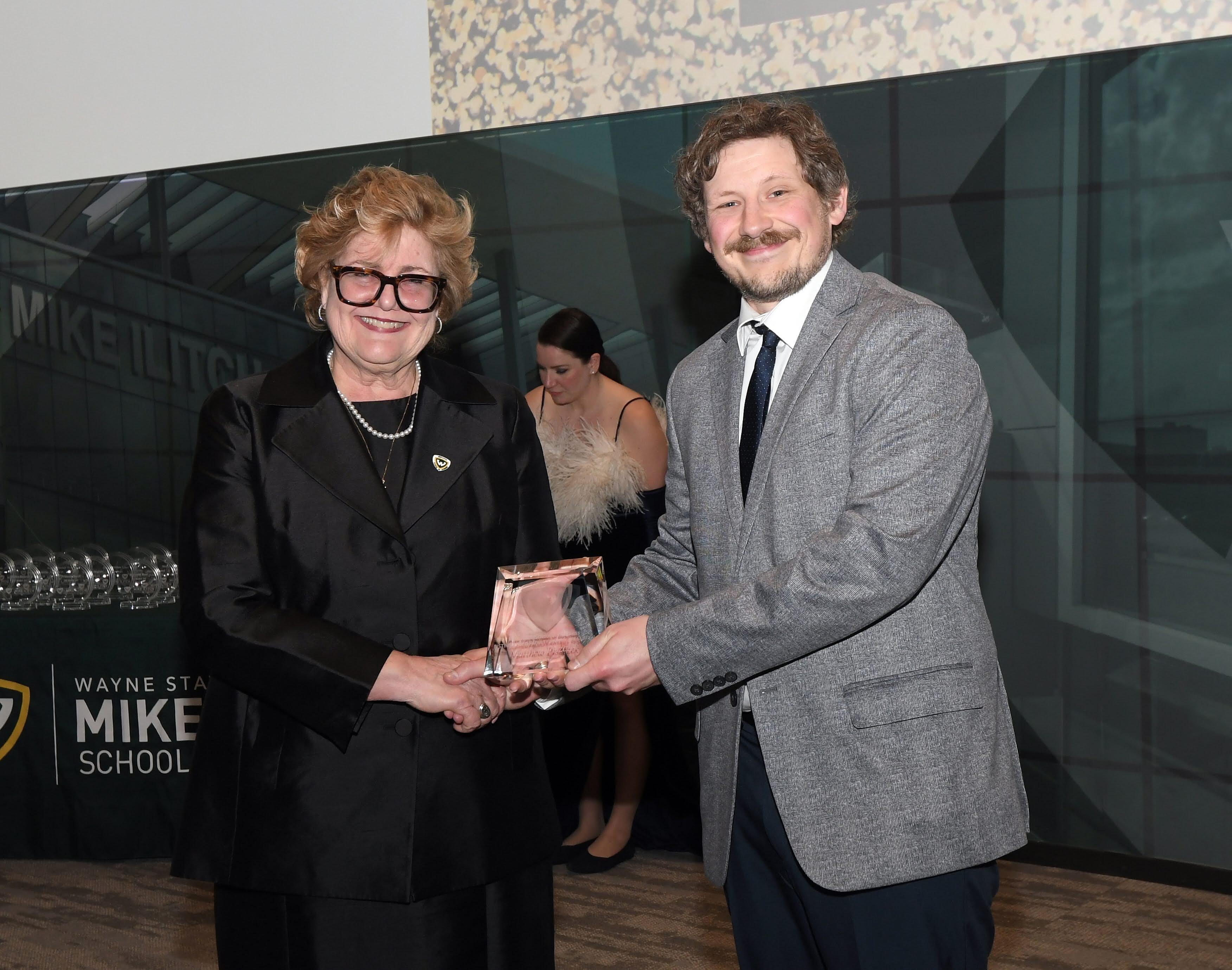Changing the workplace: Associate Professor Matt Piszczek wants to improve our working lives through his research

Associate Professor of Management Matt Piszczek wants to make the workplace better for everyone.
"I believe there are ways to improve the working environment so people can get more out of work instead of work getting more out of people," said Piszczek. "My research is focused on things like improving work-life balance, improving commute experiences, allowing workers to better experience their nonwork life in the context of turning a job into a career, and having more balance."
His research is needed now more than ever. As the workplace has evolved in the last decade, and with the rise of remote work and new communication technologies, work-life barriers have been changing, or in some cases breaking down entirely. Piszczek's work aims to address these new challenges that employees and employers face in the modern workplace.
A native of Warren, Michigan, Piszczek received an undergraduate degree in psychology before applying to graduate school.
"I got a letter in the mail from Michigan State recruiting for their HR masters program," said Piszczek. "I had forgotten about how much I loved research, which I did a lot of as an undergrad. I worked as a research assistant and the faculty encouraged me to apply for the Ph.D."
After receiving a Ph.D. from the School of Human Resources and Labor Relations at Michigan State in 2014, Piszczek became an assistant professor of human resource management at the University of Wisconsin Oshkosh, before deciding to return to Michigan and come to the Mike Ilitch School of Business in 2017.
Better commutes

Some of Piszczek's most impactful research focuses on how to better understand and improve our commuting experiences, something most Americans do every day.
"Everyone has to deal with it, and we saw there were even some people during COVID who reported feeling stuck at home, who wanted to go to the office," explained Piszczek. "Not everyone wants that, obviously, but there were people who faced so much pressure at work and then pressure at home, they didn't have any time to themselves except for the commute."
Through his investigations, Piszczek discovered that having some time to transition from home-life to work-life is really important for mentally preparing yourself for the nine-to-five, or for your five-to-nine.
"Research clearly supports the many benefits of remote work and many downsides of commuting," explained Piszczek. "If you have a really stressful commute, it can eliminate all possibility for you to detach from work and start relaxing, but our research pretty clearly shows that people are using this time to mentally transition from work to home, and that it makes a big difference."
Piszczek suggests that if you are in a remote work situation, take a few minutes at the beginning and end of your day to mentally transition, and get into work-mode or family-mode.
"Walk out of your home office, or if you don't have a home office, get up from your kitchen table where your laptop is and walk around," said Piszczek. "Your brain needs time to adjust to that role switching."
Am I on call?
Another area of research that has a particular pull for Piszczek concerns what he calls "after-hours electronic communications expectations," or those dreaded messages from management after 5 p.m., looking for a little more work.

"How responsive do you need me to be?" asks Piszczek. "Am I on call to a certain extent? How much work am I supposed to be doing off the clock, because if you're salaried there's no overtime."
Piszczek's research examines how these requests affect two established types of workers, "segmenters" and "integrators." Segmenters prefer to keep their work-lives separate from their home-lives, and integrators feel more comfortable bringing these two parts of their lives together.
"There is wiggle room, and people move back and forth between the two depending on many factors," explained Piszczek. "Overall, though, people have a general preference to keep family separate from work, or to be more fluid doing everything all at once."
Piszczek's work revealed that the expectation to perform work functions outside of regular working hours was bad for everyone, but they are worse for the segmenters than the integrators. Those who feel more comfortable mixing family and working life fare better when they are asked to complete tasks outside of normal hours, but neither group appreciated these requests.
Having an impact
This research is the kind that significantly shapes the way everyone views and conducts work, and Piszczek hopes that his research contributes to making a difference in people's lives. However, he knows that it is not that simple.
"Science is incremental. My studies aren't going to make a huge difference in and of themselves, but as a part of the broader collective of work-family research I think we are going to see improved flexibility of workplace policies," said Piszczek. "We are seeing pushes for things like four-day work weeks, flexible work schedules, remote work options. The research I am doing supports those movements and gives empirical evidence for these kinds of ideas that work doesn't have to follow this traditional modality where everyone is in the office nine-to-five, five days a week."

from Ilitch School Dean Virginia Kleist
One way that Piszczek is having a direct impact is in the classroom. He instructs the undergraduate human resource management, and employee relations classes.
"In class I try to impart this bigger picture on students, so they come out of my classes not seeing work as this rigid social institution, but as something that you have some control over," explained Piszczek. "When you approach work like that, it's a lot easier to think about things like flexible schedules or giving employees more control over when and how they work."
Ilitch School Dean Virginia Kleist has been excited to see Piszczek's name appearing on so many bylines in the last several years.
"As a Carnegie R1 classification research university, it is so important that we maintain the highest caliber of research contributions from our faculty, and the work that Matt contributes is without a doubt in this category," said Kleist. "I'm so proud to see the research Matt is conducting, and the incredible work he is doing with our Ph.D. students."
Piszczek works primarily with students in the Ph.D. program, serving as an advisor, helping candidates publish research and complete projects that will help them find jobs in academia post-graduation.
"My goal is always to start a project with them that they can ultimately stay on after the assistantship is over and be a coauthor on," said Piszczek. "Most of the time we start something, and we keep working on it until it gets published, which can take a couple of years."
As he trains the next generation of Ph.Ds. researching the workplace, and the future of the management profession, Piszczek hopes to impart to his students a new vision of what the workplace can look like.
"We need to be open minded, and trust workers to get their jobs done without these traditional modes," Piszczek explained. "I think about that broader vision of what work can be, and it comes through because that's what informs my research."
-Patrick Bernas, Information Officer III
The Wayne State University Mike Ilitch School of Business prepares students for challenging and rewarding careers, advances the boundaries of scholarly and practitioner knowledge, and enhances the economic vitality of the city of Detroit, the state of Michigan and beyond through its programs, research and community engagement. Established in 1946, the business school was renamed in 2015 in recognition of a $40 million gift from Mike and Marian Ilitch. Thanks to this lead investment, the school moved to a new state-of-the-art building in the heart of the District Detroit in 2018, and academic programming and collaboration with city businesses are expanding. For more information, visit ilitchbusiness.wayne.edu.